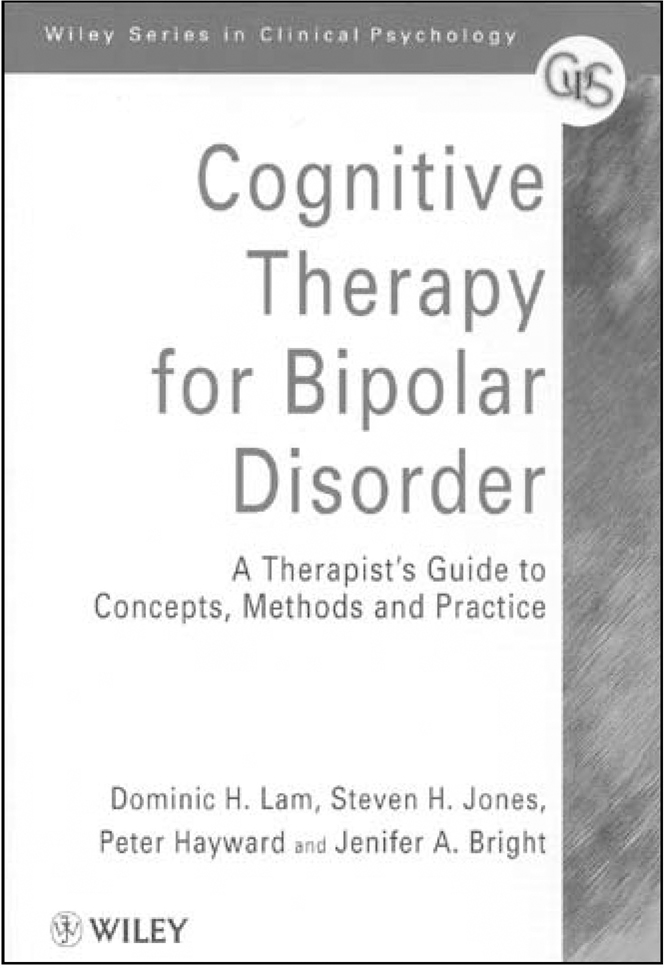Dominic Lam et al have put together an excellent book as part of the Wiley series in clinical psychology. The text falls into two broad categories. First, the authors offer a comprehensive review of our current knowledge and understanding of psychosocial problems confronting people with bipolar disorders. Then they look at the cognitive therapy treatment package and the interventions that may be used to deal with typical symptoms of manic or depressive episodes. They include detailed scripts from clinical sessions to guide the reader through the introduction and implementation of different therapy strategies.?

The book is well written and, despite its multi-authorship, the style of writing is consistent. It also covers the key elements of traditional cognitive therapy approaches and outlines how to undertake an assessment interview for cognitive therapy based on our current understanding of the psychosocial problems of people with bipolar disorders.
The text has been written at an early stage in our understanding of the application of cognitive therapy to this new patient population. For this reason, the approach tends to be pragmatic and many of the interventions appear to be symptomfocused, rather than driven by a well-developed formulation. However, this is not the fault of the authors, as we currently lack a clear theoretical model for understanding all the cognitive and behavioural aspects of bipolar disorders. Likewise, there are as yet no major outcome studies to review: the authors themselves are among the first to have published the results of a trial of cognitive therapy for bipolar disorders.
The clinical section is generally of a high standard, but does not perhaps give as much detail as it might. For example, it does not deal with drug and alcohol misuse in this population, nor how to cope with fluctuating mood states, rapid cycling or mixed states.
This book is unlikely to be the final word on the subject, as a number of other authors, including Beck himself, have produced or are about to produce manuals on the role of cognitive therapy in treating bipolar disorders. However, it will be a welcome addition to the bookshelves of most practising cognitive therapists. Many junior doctors and mental health professionals will also value the up-to-date review of psychosocial aspects of bipolar disorders and the strategies described for intervening in medication non-adherence or identifying and managing early warning signs of mania or depression. The authors have tackled a complex subject in a coherent manner and have produced a readable and informative text.



eLetters
No eLetters have been published for this article.